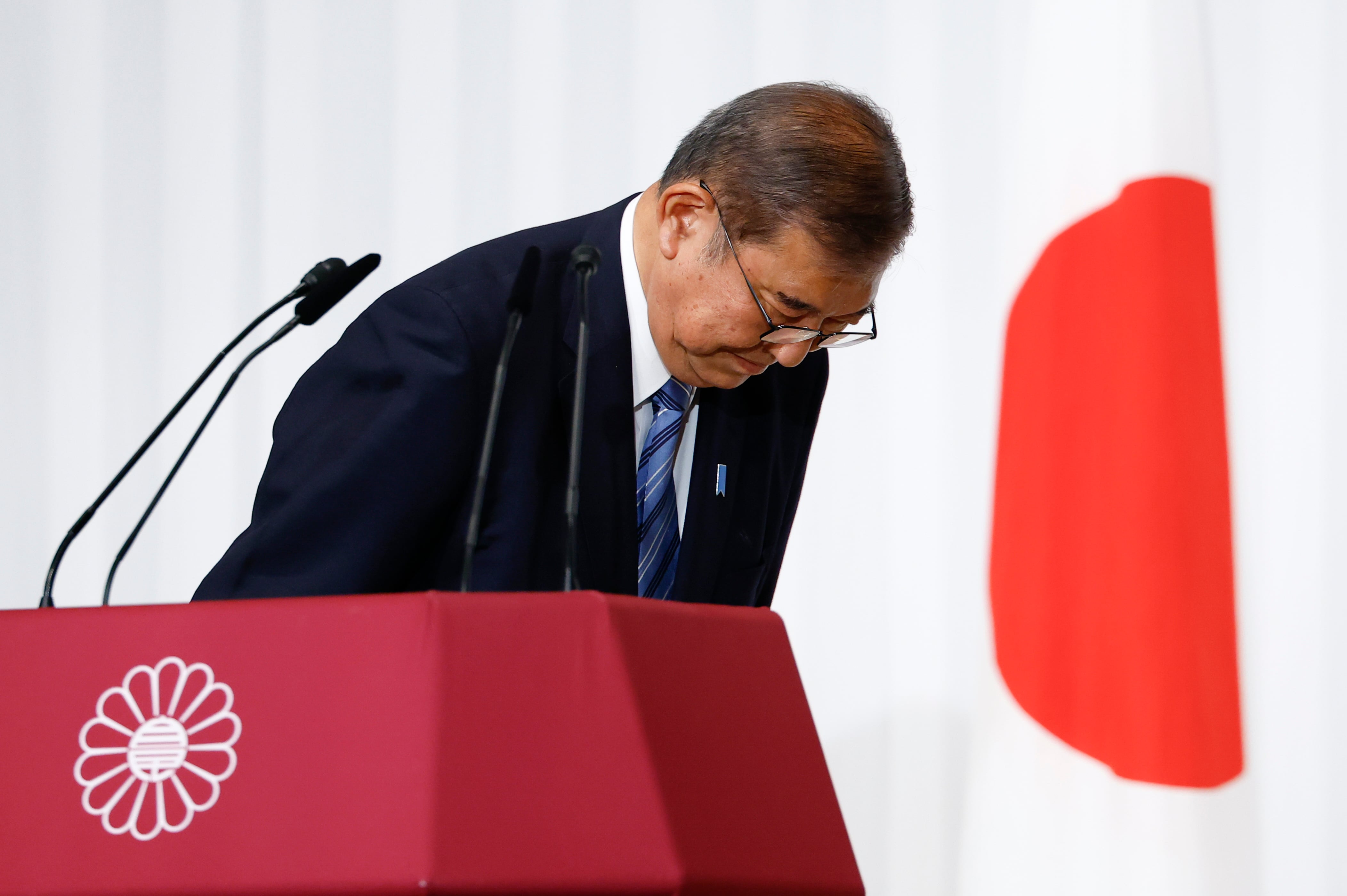
The real puzzle of Japanese politics began this Monday, after elections held on Sunday in which the government coalition has been severely punished by the voters. The result is mixed with a magma of discontent over corruption, the cost of living, inflation and the sluggishness of finances in the fourth largest economy on the planet. Prime Minister Shigeru Ishiba has assured that he will try to continue leading the nation, despite the setback at the polls. The Liberal Democratic Party (PLD), a party that has only been leading since this month of October, has won the elections, but together with its traditional partner, the Buddhist Komeito party, it has been left with 215 seats, far from the 288 in the legislature. previous, and a considerable distance from the 233 necessary to control the lower House, of 456 seats.
Meanwhile, the progressive opposition of the Democratic Constitutional Party (PCD), which has collected a good part of the discontent vote, is running numbers and measuring its chances of forming an alternative Executive, which many analysts believe is unlikely. Sunday’s count was exciting until dawn, something unusual in Japanese politics, and the result opens an uncertain period in which minority conservative and liberal formations could hold the keys to governability.
After the elections, a period of 30 days opens to hold a special session of Parliament in which deputies have to vote for the next prime minister. The event could take place on November 11, local media have reported.
The citizen rebuke of the party that has governed the country almost uninterruptedly since its founding in 1955 has been notorious. But, instead of having crystallized into a movement of indignation, many people have simply decided not to vote. Participation was 53.84%, about two percentage points less than in 2021, and the third lowest in the post-war period.
many voters they have not forgiven the financing scandal irregularity that erupted last year within the ranks of the LDP, after it was revealed that some of its internal factions, including the main one, led by former Prime Minister Shinzo Abe before his assassination in 2022, withheld information about a part of the income generated by donors and will handle hidden funds: 74% of voters have taken the case into account when casting the ballot, according to an exit poll by the Kyodo agency. It is the first time that the party has lost its majority since 2009, when the Democratic Party managed to send the PLD into opposition.
On this occasion, it has been the center-left PCD, heir to that Democratic Party, and led by former Prime Minister Yoshihiko Noda, which has achieved a notable rise. Its representation in the House of Representatives, the strong body of the Diet (the Japanese Parliament), has increased by more than 50%, going from 98 to 148 seats, although still far from a majority. Furthermore, there has been timid progress in terms of equality in a country still deeply patriarchal: The number of female legislators reached 73, a record number, despite the fact that it only represents 15.6%.
The poor result of the PLD places Ishiba in a delicate position, who took the reins of the Government on October 1, replacing Fumio Kishida, whose popularity had plummeted due to the corruption plot. After being inaugurated, he immediately called early elections to benefit from the element of surprise. The play has gone wrong. Many analysts have speculated that he will soon resign, which would make him the shortest prime minister in postwar Japanese history.
But, for now, the still prime minister has assured this Monday that he intends to continue in office given the economic and security situation in the country. “We cannot afford a political blockade,” he said in an appearance at the PLD headquarters, in which he outlined that his idea is to reach concrete and specific pacts with the opposition parties; cooperative relations, without the need to add more formations to the Government coalition.
Ishiba has also been self-critical about the defeat: “We have failed to address the suspicions, mistrust and anger over undeclared political funds and the issue of money in politics,” he said, according to Kyodo.
Opposition leader Noda has also assured that he will hold “sincere” talks with the rest of the opposition in the race for the special session of the Diet. The courtship of the third and fourth political forces will be intense. The conservative Innovation Party (with 38 seats) and the center-right People’s Democratic Party (with 28) have become pivotal forces that will force the first swords of Japanese politics to dust off the balance manual. Both have been reluctant to join a coalition, but could agree to specific pacts. Yuichiro Tamaki, leader of the PDP, assured this Monday that his party is open to policy discussion.
It is expected that the negotiations will impact points that have focused the debate in the campaign. Among them, how to start the economy and alleviate the blow of inflation or the possible revision of the Constitution, which could open the door for Japan to abandon the pacifism inscribed in it under the argument of the growing threat to its security from China. , Russia and North Korea.

